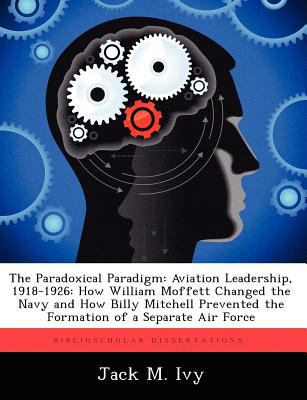
Book
|
The paradoxical paradigm : aviation leadership, 1918-1926 : how William Moffett changed the Navy and How Billy Mitchell prevented the formation of a separate Air Force
-- Aviation leadership, 1918-1926 : how William Moffett changed the Navy and How Billy Mitchell prevented the formation of a separate Air Force
Copies
1 Total copies, 1 Copies are in,
0 Copies are out.
Title
The paradoxical paradigm : aviation leadership, 1918-1926 : how William Moffett changed the Navy and How Billy Mitchell prevented the formation of a separate Air Force -- Aviation leadership, 1918-1926 : how William Moffett changed the Navy and How Billy Mitchell prevented the formation of a separate Air Force
Subjects
Language
English
Published
[United States?] : Biblioscholar Dissertations, 2012.
Publication Desc
vii, 62 pages ;
ISBN
9781249836865
Dimensions
25 cm









